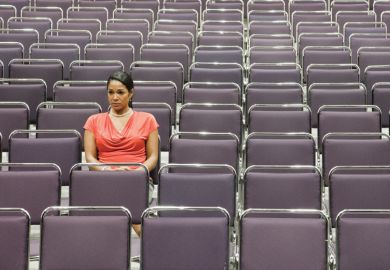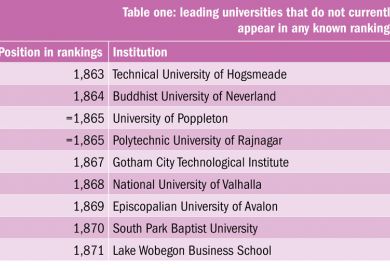Jammy dodger?
“Only £2! It’s hardly believable. A truly remarkable achievement.”
That was our vice-chancellor’s response to the news that Professor Dame Glynis Breakwell, the vice-chancellor of the University of Bath, had included a claim of just £2 for biscuits in her recent expenses submission.
Our vice-chancellor admitted that Dame Glynis’ overall expenses bill of £20,000 did also include claims for a vacuum cleaner and steam mop, laundry services, gas and electricity, council tax, water and sewerage, even though she resided in a grace-and-favour property owned by the University of Bath and received £8,738 a year to pay for her housekeeper as well as enjoying an annual emolument of £400,000. 1
These sums, admitted our vice-chancellor, might seem “somewhat on the lofty side” to those unfamiliar with the gruelling work of presiding over a modern university, but he added: “Any vice-chancellor, like Dame Glynis, who can keep their biscuit bill at such a very modest level is clearly anything but a freeloading spendthrift.” 2
Notes
1. Our own vice-chancellor’s expenses claim is sub judice.
2. One packet of Duchy Organic all-butter shortbreads is currently priced at £1.99.
Steady as she goes
Our Head of Teaching Excellence Framework Submissions, Mr Ted Chippings, has admitted that our university faces “a huge task” in converting many of our present lecturers into the type of teachers likely to be favoured by students in the National Student Survey.
Mr Chippings told our reporter, Keith Ponting (30), that his concerns in this respect had been reinforced by a new study from Gary Hall, professor of media and performing arts at Coventry University, that argued persuasively that the lecturers who would “prosper” in the new TEF world of higher education would be those who were able to maintain “a positive, if largely bland, profile and reputation” that would “not upset or challenge students”.
This clearly meant, said Mr Chippings, that “we must require our teaching academics to raise the general level of blandness in their lectures and seminars. They should beware, for example, of suggesting that one economic theory is superior to another or indicating a clear preference for Austen or Dickens or indeed being seen to favour dualism at the expense of monism.”
“How might this substantial change be best effected?” asked Ponting.
“In the first place,” said Mr Chippings, “we will require teaching staff to attend lectures given by some of our bland leaders. One thinks, for example, of Professor Lapping’s current series on how social media may or may not be having some sort of effect on some part of our lives. The hope is that exposure to such fundamentally unchallenging material will rub off on our more opinionated teaching staff.”
“An example of the bland leading the bland,” suggested Ponting.
“I’m afraid,” said Mr Chippings, “that that’s exactly the type of smart-arsed pun that would find no place in our new wholly unchallenging teaching programme.”
Register to continue
Why register?
- Registration is free and only takes a moment
- Once registered, you can read 3 articles a month
- Sign up for our newsletter
Subscribe
Or subscribe for unlimited access to:
- Unlimited access to news, views, insights & reviews
- Digital editions
- Digital access to THE’s university and college rankings analysis
Already registered or a current subscriber?




